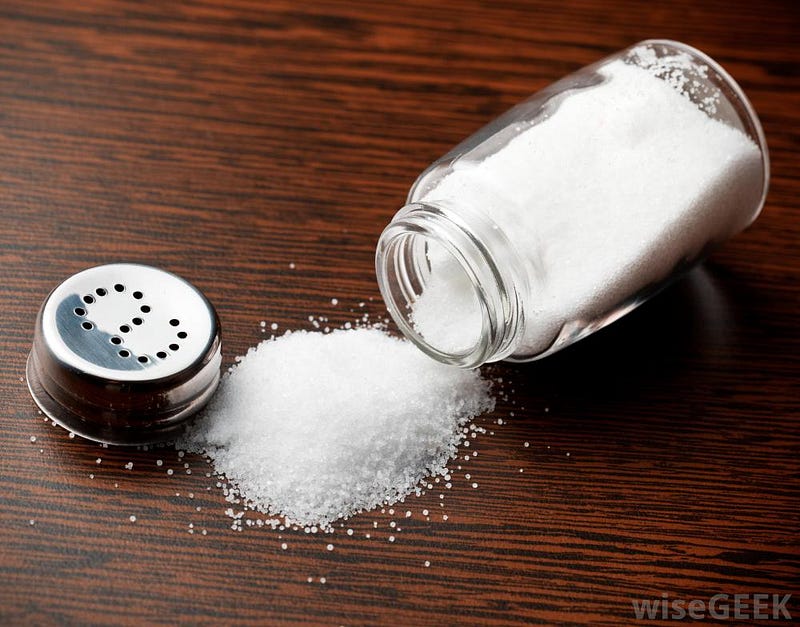Salt for Human Body
Do We Need Salt?

You can find salt almost everywhere around the world. Common salt, or sodium chloride, is the chemical compound of NaCl. It is used as seasonings in foods, cooking, cosmetics, and for preserving food. Salt mostly comes from the ocean or seawater.
Do We Need Salt?
Salt plays a crucial role in maintaining human health. The effects of salt in the human body depend on the consumption of salt. Sodium ions are needed by most living things, as are chloride ions.
Sodium is essential for nerve and muscle function and regulates the fluids in the body. Sodium also controls the blood pressure and volume in the body. Even though sodium is essential to the human body, too much sodium consumption may cause your hypertension or high blood pressure, a condition that can lead to serious diseases such as heart disease, kidney disease, and stroke.
Chloride ions serve as important electrolytes by regulating blood pH and pressure. Electrolytes are compounds, often salts, which dissociate into their ionic components in solvents like water. Chloride is also a part of the production of stomach acid (HCl). Humans excrete salt in the form of sweat and must replenish the loss of sodium and chloride through their diet.
The importance of salt for the human body is also the same for animals. Just like in the video from youtube.com that was uploaded by BBC with “The incredible ibex defies gravity and climbs a dam” as a title. In the video, it illustrates that the ibex goats endanger themselves by climbing the dam to get essential minerals from the rocks that were used to build the dam that has been dissolved in water, such as salt.
High Consumption of Salt
Salt is essential to the human body. The amount of salt you consume has a direct effect on your body. Too much of salt consumption may cause you various diseases.
Health effects if you eat too much salt include:
· High blood pressure. If you eat too much salt, the extra water stored in your body raises your blood pressure. So, the more you eat salt, the higher your body’s blood pressure.
· Stroke
· Cardiovascular disease
· Edema
· Left ventricular hypertrophy
· Kidney disease
Low Consumption of Salt
Too much salt can cause you high blood pressure and other diseases. However, even though too much salt can cause diseases, consuming too little salt can also cause you other serious diseases.
· Increase in insulin resistance. A condition that causes higher blood sugar and insulin levels. This may lead to type 2 diabetes and other serious diseases
· Increase in heart diseases. Some observational studies show that low consumption of salt can increase the risk of death from heart attacks or strokes.
· Increase LDL cholesterol and triglycerides
· Increase risk of death for diabetics
How much salt Should You Eat?
If you have a medical condition that requires a low salt diet, or if your doctor tells you to limit your intake, then continue to do so. But if you are a healthy person, then there is no good evidence that a low salt diet will improve your health. An intake of 3000–5000 mg per day has been suggested as optimal for people with no medical conditions or healthy people.

